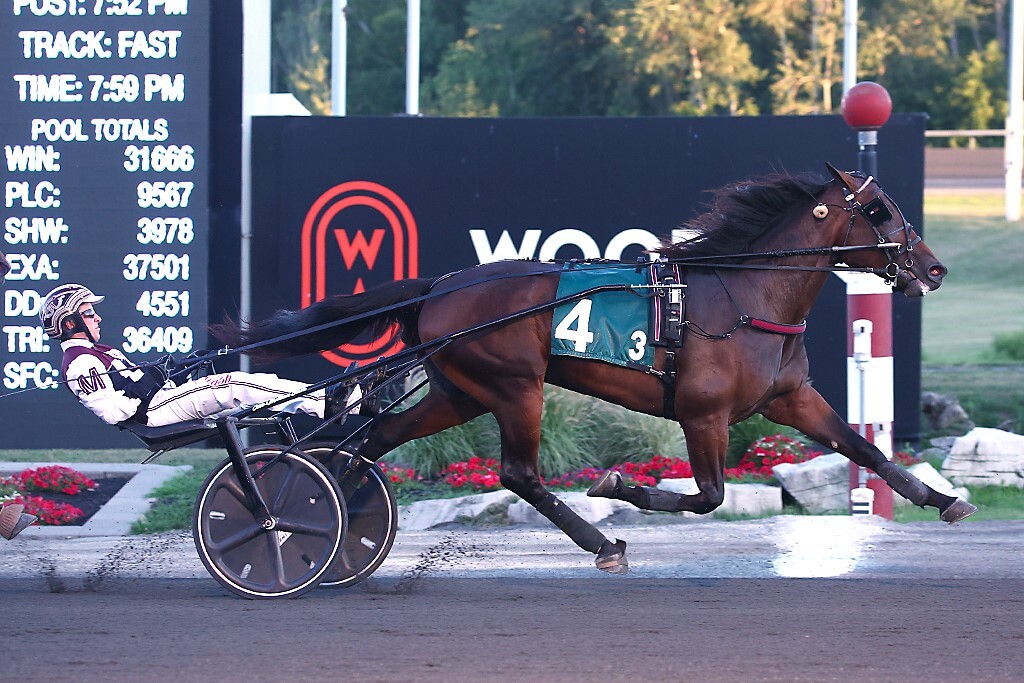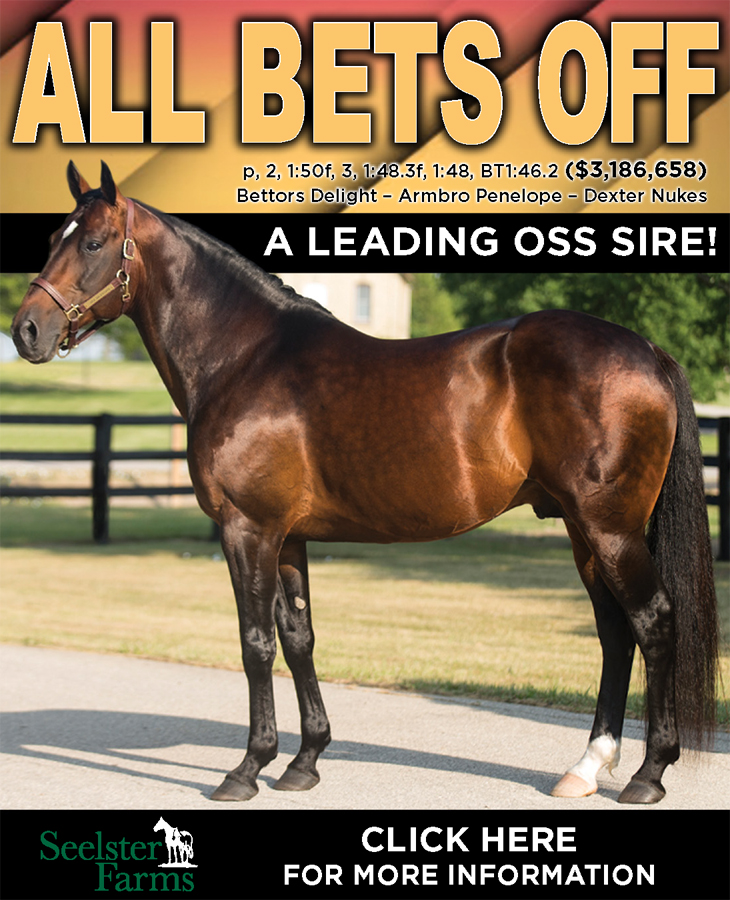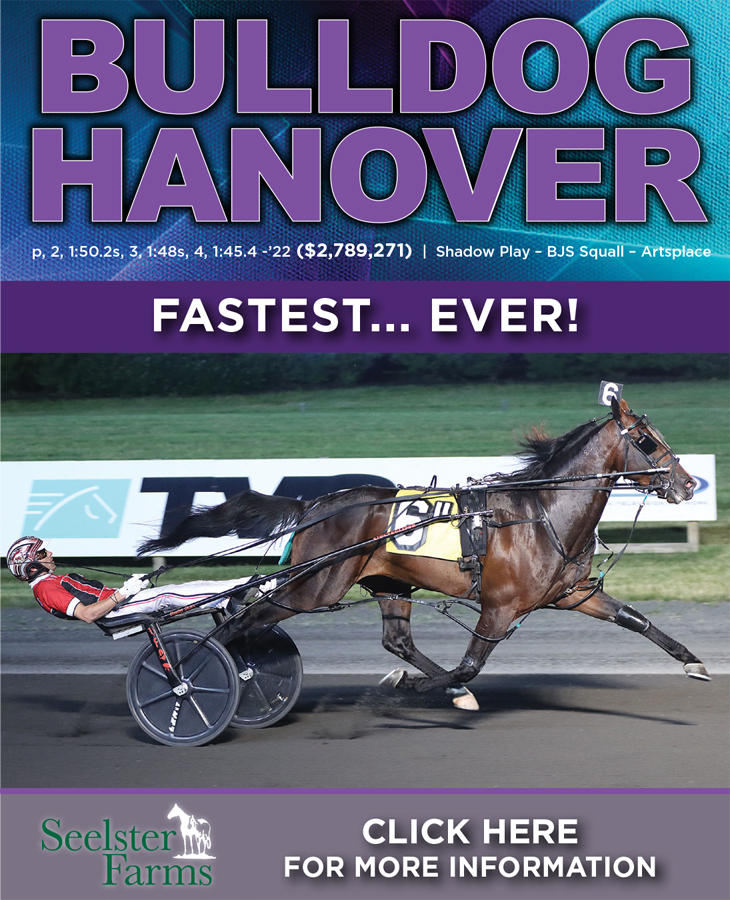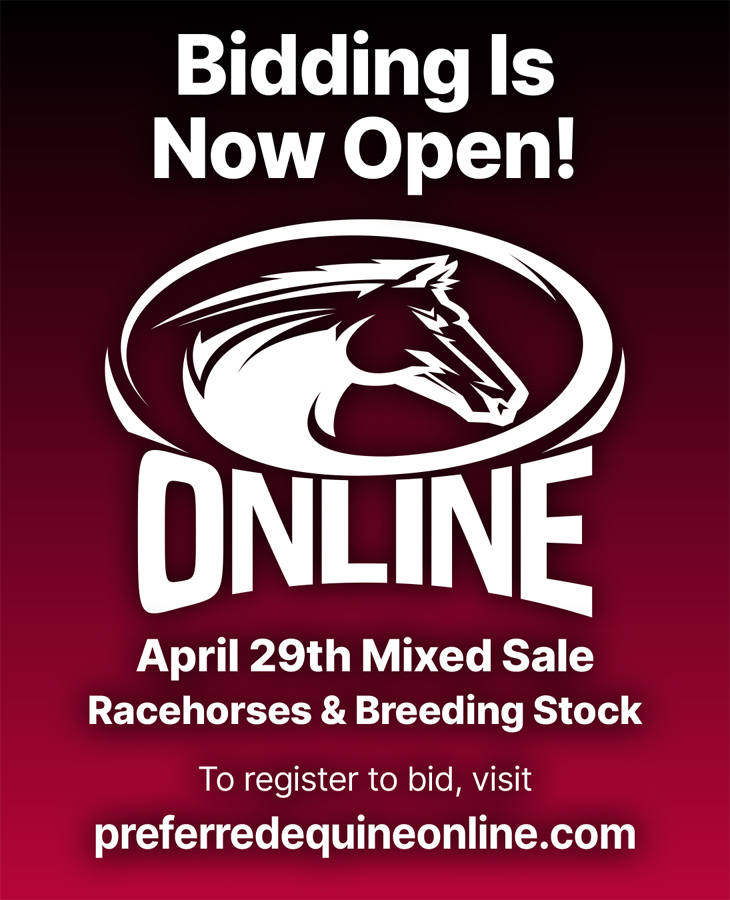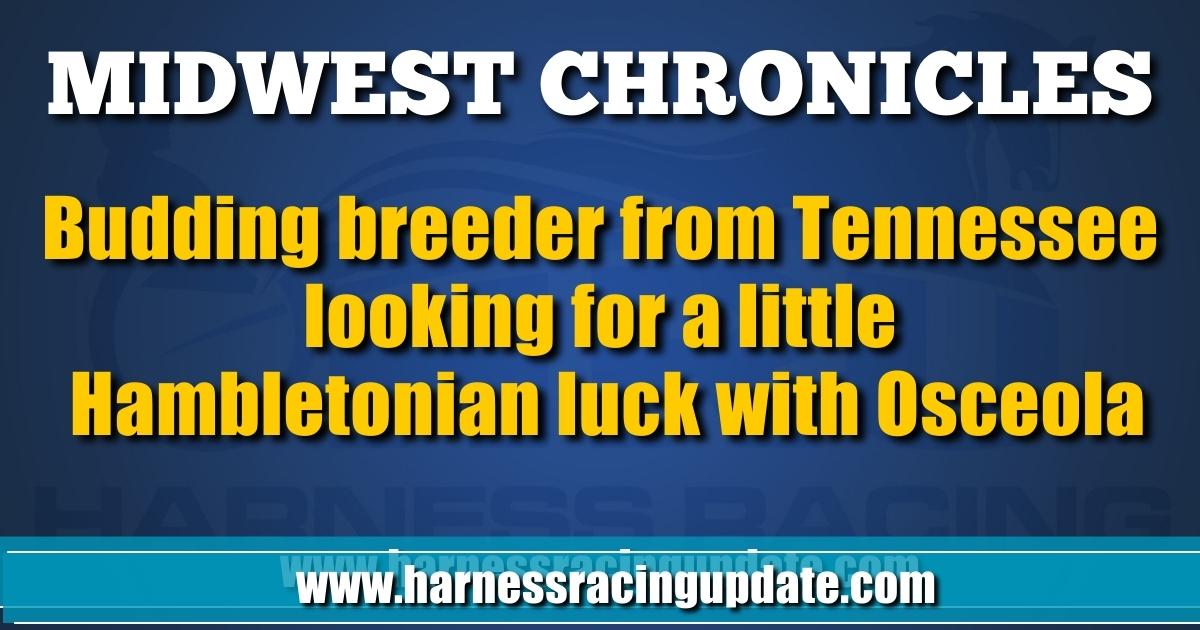

Budding breeder from Tennessee looking for a little Hambletonian luck with Osceola
A little more than a decade after getting into the horse business, lawyer Richard Arnold has built a growing standardbred operation at his successful Willow Oak Ranch cattle farm in Tennessee.
by James Platz
Richard Arnold has a fascination with genetics. That pursuit is what led him into the cattle business, and eventually brought him to horse racing and breeding. On Saturday (Aug. 5) at The Meadowlands, Arnold’s Willow Oak Ranch will be represented by $1 million Hambletonian finalist Osceola and New Jersey Sire Stakes finalist Mars Hill.
“Personally, I’m excited about it, and I’m really happy for all the people that have helped us get here,” said Arnold.
The 76-year-old attorney from Tennessee is quick to identify all that have helped he and his wife, Mary, along the journey into standardbred racing and breeding. The story begins with the late Bart Glass, who Arnold connected with first through cattle and Walco Farms.
“[Glass] used to come to our bull sale every year. We would sell around 150 bulls a year. He had some serious health problems around 2007 and 2008. He was a real good friend, and my wife and I would drive up and spend time with him. We liked Kentucky basketball and cattle, and eventually we got around to talk about horses,” Arnold said. “He kept encouraging us to try the horse business. He thought if we applied the same principles we used in developing our cattle that we might enjoy it. He knew how much I liked genetics and breeding and studying pedigrees.”
Arnold started his cattle farm in 1982 in Rogersville, located northeast of Knoxville. He was slow and methodical in growing Willow Oak Ranch. There, he crossed Chianina cattle with Angus cattle to develop the hybrid Chiangus breed. At the height of Willow Oak’s operation, Arnold had 450 cows and sold 150 bulls each year.
“In about 1995, we felt we had a product that was good enough and we started having our own commercial sale. Our target was commercial ranchers around the country,” said Arnold. “Our selling points were that these cattle were a hybrid vigor that would grow very well, they calved easily, they’re very athletic, and they had lots of lean red meat with good marbling with no external fat. That took off. By 2000, we developed a national market and have been selling them across the country ever since.”
Under Glass’s advice, the breeder began researching standardbreds, and he attended his first sales in Lexington in 2009 and 2010. Arnold pored over the pedigrees of each horse, watched endless videos and delved into the data in the USTA’s Pathway database. He noted the similarities between cattle and racehorses.
“There are two or three principles that are the same,” he said. “One is that conformation is critical for animals to have any longevity or durability. Pedigree is critical. Families make a huge difference. Horses, of course, need a little more attention and care.”
Just like in his approach to cattle, Arnold took a slow, methodical path with equines. First, he bought a pair of yearlings to bring back to the farm. He didn’t intend to race them as much as to help determine how horses would fit into an operation focused on cattle.
“I wanted to try to figure out if we were going to be able to integrate the horse business in the middle of this cattle business. It helped us figure out what we needed to do,” he said.
With the horses requiring more attention, Arnold has taken the property behind his home and made it the primary home for his growing standardbred enterprise. At first, he converted a hay barn that featured 10 stalls. Today, they have facilities that offer 40 stalls to accommodate the 15 yearlings, 14 weanlings and 26 broodmares. They have also scaled back the cattle operation as the broodmare band expands.
“We took our time, like we did in the cattle business,” Arnold said. “We took the core of the farm behind our house and developed a nursery, mainly because the horses need more attention. I wanted to have these horses where they could be seen all the time by the people that work here and me. If you come here now, you think we only have horses, but we still have a lot of cattle. The cattle are all in the surrounding pastures.”
Arnold sells the Willow Oak Ranch yearlings at Lexington each year, with Glass’ son, Jimmy, preparing the babies before sending them on to Steve and Cindy Stewart at Hunterton Farm, who consign them as agents. As Arnold learned more about the business of racing, the breeder desired to keep ownership stakes in some of the horses he bred.
“I didn’t initially intend to race horses, but when I got into it, I realized I’m trying to breed an animal I knew nothing about the end use,” he said.
In his thirst for knowledge, Arnold has tapped into the experience of those around him. He talks with his conditioners, which include Gregg McNair, Tony Alagna, Julie Miller and Virgil Morgan, the Stewarts, Jimmy Glass, and others about his vision for Willow Oak Ranch and where he wants to take the breeding operation.
“A lot of them are very generous with their knowledge,” Arnold said. “My wife always jokes that if I decided to become a Catholic, I would call the pope directly. I’m not shy about asking questions. And I actually listen. And I do my best, if I understand it, to do what people suggest. I think we improve every year in what we’re doing.”
The benefit of having horses in his backyard is that Arnold gets a feel for each crop of yearlings before they head to the sale. So, he knows which he may want to own a portion of after they sell. Conway Hall mare Armbro Exquisite is the first broodmare that Arnold purchased when he delved into breeding horses. Each of her first eight foals are starters, with seven winners including Saturday’s Hambletonian starter Osceola. Arnold campaigned his full-sister, Baby Longstockings, with McNair serving as trainer.
“She cracked a bone at 2, but when she got going she was really good as a 3-year-old in Canada,” Arnold said.
Baby Longstockings finished in the money in 12 of 15 starts as a sophomore, hitting the board nine times with three wins. The Muscle Mass filly took a mark of 1:55.1 while earning $156,055 that season.
When it came time to sell Osceola, Arnold knew he wanted to own a piece of the colt. When McNair purchased the yearling for $70,000, he offered the breeder a third and brought on Paul Hawman of South Carolina to round out the partnership. Last season, the Muscle Mass colt started the year with two wins in his first three starts, but was plagued by breaks in several attempts including the Breeders Crown final where he jumped it off and finished last.
“When he first started out in Canada as a 2-year-old, it looked like he was going to be really difficult to beat. Right in the middle of the summer, he decided that when he was going around the turn, he was going to run a little bit. You could never tell what he was going to do,” Arnold said. “He was in a number of top races. He looked good in all of them until he didn’t, until he ran.”
This season, the colt started with two victories and a runner-up performance to kick off his sophomore campaign. However, breaks in the Goodtimes and an Ontario Sires Stakes Gold leg led McNair to make equipment changes. Arnold admitted that the Hambletonian appeared off the table until the trotter rebounded in a qualifier, winning by 13 lengths and stopping the clock in 1:53.4.
In last week’s elimination, driver Doug McNair, Gregg’s son, raced Osceola conservatively through the mile, trotting seventh until the field turned for home. Once in the stretch, the trotter with the second longest odds on the board (51-1), closed with a :27.1 brush to finish third, registering a 1:51.3 mile.
“He is loaded with trot. He’s got a lot of it. He can leave fast from the gate and he can finish fast. Doug deserves all the credit in the world. He didn’t let him go until the last 50 yards,” Arnold said. “The last two races he’s looked like the horse we thought he could be last year. Gregg is as patient as he can be and Doug has been disciplined driving him.”
Osceola has drawn post three in the $1 million final with a morning line of 12-1.
Earlier in the card, Arnold will have another interest as freshman Mars Hill will attempt to stay undefeated in the $240,000 New Jersey Sire Stakes final for colt and gelding trotters. Trained by Alagna, the Muscle Hill colt is out of Cardinale, which Arnold also bred. The second dam, Mississippi Beauty, is one of the yearlings that first arrived in Rogersville, bringing everything full circle.
“Myron Bell once told me, and I buy this completely, he said, ‘It takes skill and judgment to breed a good horse. It takes skill, judgment and luck to breed a great horse.’ I’m still waiting on the luck,” Arnold said.
Should Osceola cross the wire first on Saturday afternoon, it would be worth the wait.








